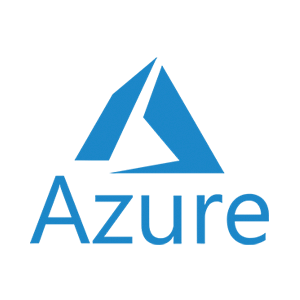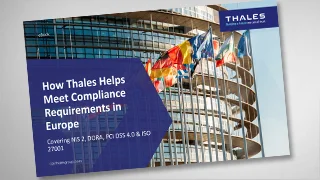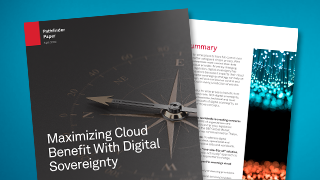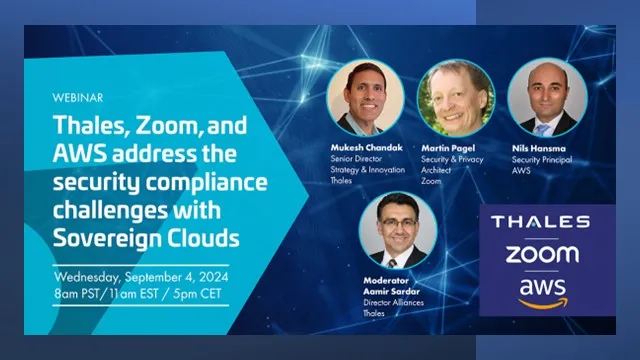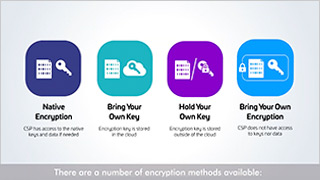Data sovereignty is a subset of "digital sovereignty" which refers “to the ability to have control over your own digital destiny – the data, hardware and software that you rely on and create”. Given the awesome reliance of the modern enterprise on digital platforms, digital sovereignty encompasses a huge part of the key platforms, processes and services that make global businesses successful today.
Thales sovereignty-enhancing controls for Hybrid IT help organizations simplify governance, achieve regulatory compliance, and reduce risk in the cloud. Thales sovereign controls support all cloud models, enabling organizations to achieve data, operational and software sovereignty with a combination of application, data and identity security solutions.
Data Sovereignty
Maintain control over encryption and access to your data. This ensures sensitive data doesn’t fall into the hands of a foreign entity without express permission.
Operational Sovereignty
Gain visibility and control over provider operations. This ensures bad actors or malicious processes cannot access, or prevent you from accessing, valuable data.
Software Sovereignty
Run applications without dependence on a provider’s software. This gives organizations the freedom to store and run workloads wherever desired.
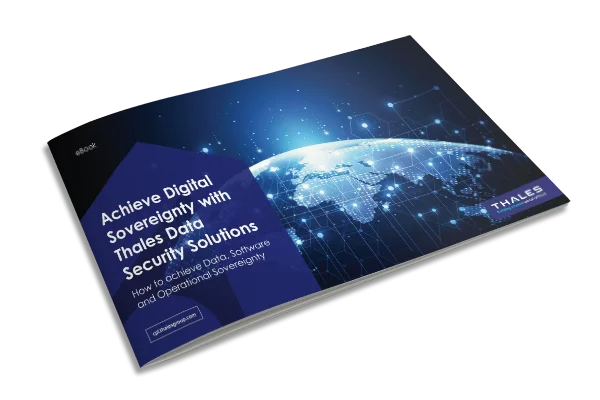
Achieve Digital Sovereignty with Thales Data Security Solutions
Thales data security solutions help organizations protect sensitive data, block against unauthorized access and ensure portability between clouds, giving organizations a clear path towards digital sovereignty.
How Thales enables sovereign access and identity control
Whether managing employee access or enabling secure collaboration with external parties like suppliers or contractors, Thales ensures identity data and access policies remain under your control, supporting sovereignty at every point.

Thales and Google Cloud: Solving the complexities of taking charge of your data
Google Cloud Data Sovereignty
Google Cloud Platform Security
Thales announced a new collaboration with Google Cloud that will accelerate the ability of enterprises to safely migrate sensitive data between public cloud, hybrid and private IT infrastructures. Google Cloud customers can now maintain strong data sovereignty in the Google Cloud with encryption key visibility and lifecycle management.

AWS Data Sovereignty in the Cloud
Secure workloads across Amazon Web Services (AWS)
Amazon Web Services (AWS) offers convenience and cost savings. However, for you to achieve data sovereignty in the AWS cloud, you need to follow security, privacy and compliance rules, as well as best practices, for protecting data. Thales advanced encryption and centralized key management solutions give you protection and control of in the cloud.

Azure Data Sovereignty in the Cloud
Secure workloads across Microsoft Azure
Whether you are running on 100% Microsoft Azure, or a hybrid cloud, you still need to follow security best practices for protecting data and achieving data sovereignty in the Azure cloud. Thales solutions provide a number of solutions to protect sensitive data leveraging “Bring Your Own Encryption” (BYOE) or “Bring Your Own Key” (BYOK) methodologies.
